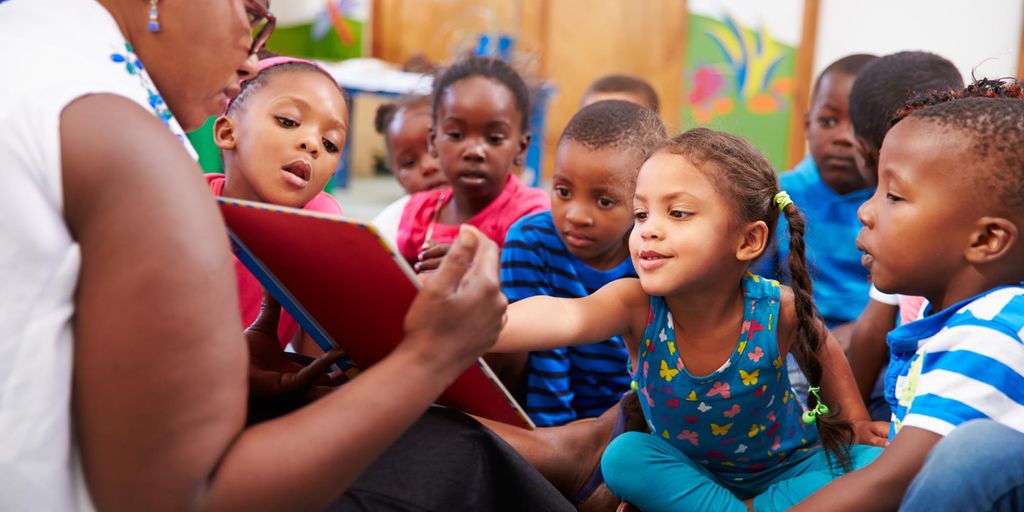
The concept of positive parenting has gained substantial traction over the years, recognized for its profound influence on child development. This article explores the various dimensions of positive parenting, examining its psychological, educational, social, and long-term effects on children. Through a detailed analysis, we will delve into the mechanisms by which positive parenting fosters emotional, cognitive, and social growth, ensuring a well-rounded development for children.
Key Takeaways
- Positive parenting significantly enhances emotional regulation and effortful control, enabling better focus and emotional expression in children.
- It leads to improved school adjustment and academic motivation, which are critical for educational success.
- Positive parenting promotes prosocial behaviors and social competence, reducing behavioral problems and fostering healthy social interactions.
- The benefits of positive parenting are long-lasting, often continuing into adulthood and promoting lifelong optimism and well-being.
- Practical applications and research-backed programs are available to help parents adopt positive parenting techniques, addressing common challenges and enhancing child development.
Understanding the Foundations of Positive Parenting

Defining Positive Parenting
Positive parenting is all about making child-rearing choices that reflect your beliefs and values as a parent, your child’s age and stage of development. This approach fosters a strong, healthy relationship through consistent support and nurturing. The goal is to empower children to become confident and socially responsible individuals.
Core Principles of Positive Parenting
Positive parenting revolves around warmth, understanding, and guidance rather than punishment. Key principles include:
- Empathy and understanding
- Clear communication
- Consistent support
- Positive reinforcement
Historical Evolution of Parenting Approaches
The concept of parenting has evolved significantly over the centuries. Initially, approaches were more authoritarian, focusing on obedience and discipline. Over time, the shift towards more supportive and empathetic parenting styles has become prominent, reflecting a deeper understanding of child psychology and development.
The Psychological Impact of Positive Parenting

Enhancing Emotional Regulation
Positive parenting significantly contributes to a child’s ability to manage their emotions effectively. By providing a supportive and nurturing environment, children learn to understand and regulate their feelings, which is crucial for their overall mental health and interpersonal relationships. This emotional foundation is essential for developing healthy coping mechanisms and resilience against stress.
Promoting Effortful Control
Effortful control is a key aspect of emotional and behavioral regulation. Positive parenting practices encourage children to develop this skill, which involves maintaining focus and controlling impulses. Through consistent guidance and positive reinforcement, children enhance their capacity to manage distractions and prioritize tasks, leading to improved academic and social outcomes.
Building Resilience in Children
Resilience is the ability to bounce back from setbacks and adapt to challenging situations. Positive parenting fosters resilience by instilling a sense of security and self-worth in children. Supportive parenting ensures that children feel valued and confident, empowering them to face life’s challenges with optimism and strength. The nurturing approach of positive parenting lays a robust foundation for lifelong resilience and well-being.
Positive Parenting and Educational Outcomes

Improving School Adjustment
Positive parenting significantly contributes to better school adjustment. Children who experience supportive and nurturing environments are more likely to adapt well to the school setting, showing improved attendance and fewer disciplinary issues. This leads to a more conducive learning environment and better overall academic performance.
Fostering Academic Motivation
The role of positive parenting in fostering academic motivation is crucial. Studies have shown that children raised with positive reinforcement and encouragement are more likely to develop both intrinsic and extrinsic motivation towards learning. This not only enhances their engagement in educational activities but also boosts their desire to excel academically.
Supporting Cognitive Development
Positive parenting practices are directly linked to enhanced cognitive development in children. By providing stimulating interactions and a rich learning environment, parents can significantly boost their children’s cognitive skills from a young age. This foundation supports not only academic success but also lifelong learning abilities.
Social Benefits of Positive Parenting

Encouraging Prosocial Behaviors
Positive parenting significantly enhances the development of prosocial behaviors in children, such as sharing, empathy, and cooperation. These behaviors are crucial for building healthy relationships and contributing positively to society. Children learn these behaviors through modeled actions and reinforced practices within the family setting.
Increasing Social Competence
The nurturing environment created by positive parenting fosters a child’s social competence. This includes the ability to interact effectively with peers, manage social situations, and develop meaningful friendships. The emphasis on respect and positive discipline within positive parenting helps children learn appropriate social behaviors and skills.
Reducing Behavioral Problems
Positive parenting strategies are directly linked to a reduction in behavioral problems among children. By using techniques that emphasize understanding and communication, parents can effectively guide their children away from negative behaviors and towards more constructive actions. This approach not only improves the child’s current behavior but also sets a foundation for long-term positive social interactions.
Long-Term Effects of Positive Parenting

Sustaining Benefits into Adulthood
The outcomes associated with positive parenting are long-term and often permanent, ensuring that the benefits extend well into adulthood. This continuity is crucial for maintaining emotional stability and fostering a sense of security throughout a person’s life.
Promoting Lifelong Optimism
Positive parenting significantly contributes to an increase in optimism among children. This optimistic outlook is carried forward into adulthood, enhancing overall life satisfaction and resilience against stress.
Ensuring Permanent Positive Outcomes
Positive parenting practices are not just temporary fixes but provide a foundation for permanent positive outcomes. These include improved social skills, better emotional health, and fewer behavioral issues. Research suggests that children who have positive social-emotional health tend to be happier, demonstrate better academic performance, and display fewer behavioral problems.
Practical Applications of Positive Parenting

Examples of Positive Parenting in Action
In the realm of child-rearing, examples of positive parenting in action are pivotal for understanding its effectiveness. These range from structured programs targeting specific risk factors to more general preventative approaches. Noteworthy examples include strategies for managing temper tantrums, promoting sibling harmony, and supporting children through family transitions like divorce.
Addressing Common Parenting Challenges
Positive parenting is not just about preventing problems but also about tackling everyday challenges with optimism and confidence. Whether it’s dealing with bedtime routines, mealtime manners, or more severe issues like ADHD and teen pressures, positive parenting provides a balanced approach to discipline and support.
Programs and Resources for Parents
A variety of programs and resources are available to help parents implement positive parenting practices. From free downloadable exercises to comprehensive guides on child development, these resources empower parents to foster a nurturing environment and build a lasting connection with their children.
Research and Studies on Positive Parenting

Overview of Key Research Findings
The body of research on positive parenting consistently highlights its effectiveness in fostering child development. Key findings indicate that positive parenting significantly enhances a child’s emotional and social skills. This includes improvements in communication, empathy, and conflict resolution abilities.
Impact Studies by the Positive Parenting Research Team
Recent studies by the Positive Parenting Research Team have focused on the direct correlation between positive parenting techniques and children’s academic and behavioral outcomes. These studies provide compelling evidence supporting the adoption of positive parenting practices.
Shifts in Parenting Research Paradigms
The evolution of parenting research has seen a shift towards examining the positive aspects of parenting. This paradigm shift emphasizes the importance of nurturing environments over punitive measures, aiming to promote long-term positive outcomes in children.
Conclusion
In conclusion, the evidence presented throughout this article underscores the profound impact of positive parenting on child development. From enhancing emotional regulation and school adjustment to fostering resilience and optimism, the benefits of positive parenting are both extensive and enduring. These outcomes are not just temporary but have the potential to shape a child’s development well into adulthood. By adopting positive parenting practices, parents can significantly contribute to the holistic development of their children, ensuring they grow into well-adjusted, confident, and capable individuals.
Frequently Asked Questions
What is Positive Parenting?
Positive parenting is a nurturing approach that emphasizes positive reinforcement and communication to foster a child’s development in a supportive and non-punitive manner.
How does Positive Parenting affect a child’s emotional regulation?
Positive parenting enhances a child’s ability to regulate emotions by promoting effortful control, which helps in focusing attention and managing emotions effectively.
What are the educational benefits of Positive Parenting?
Positive parenting leads to better school adjustment, fosters academic motivation, and supports cognitive development, contributing to overall academic success.
Can Positive Parenting improve social skills in children?
Yes, positive parenting encourages prosocial behaviors and increases social competence, which are crucial for developing healthy social interactions and reducing behavioral problems.
What long-term effects does Positive Parenting have on a child?
Positive parenting sustains benefits into adulthood, promoting lifelong optimism and ensuring permanent positive outcomes in various aspects of life.
Are there specific programs or resources available for Positive Parenting?
Yes, numerous programs and resources are designed to support parents in adopting positive parenting practices, providing guidance and practical strategies for addressing common parenting challenges.






